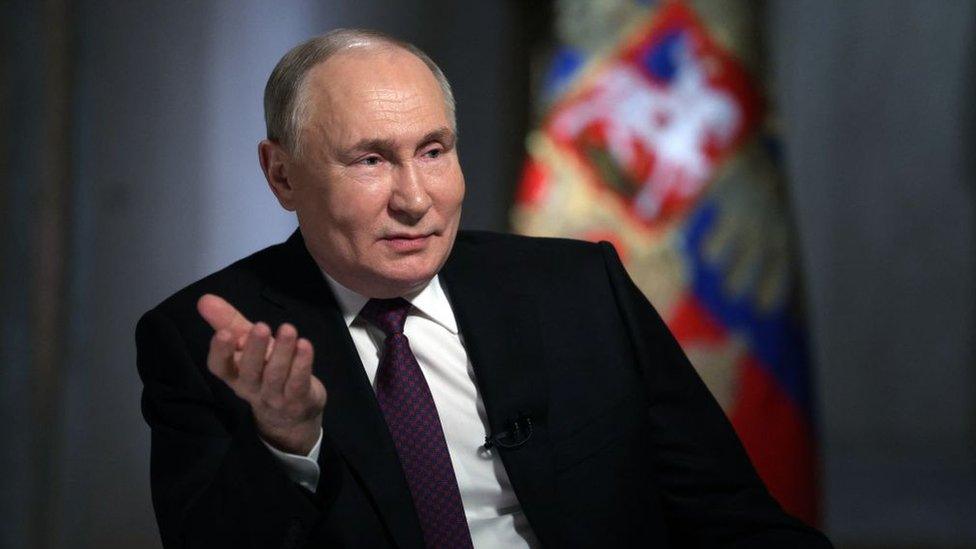Russia moves to protect Putin from prosecution
- Published
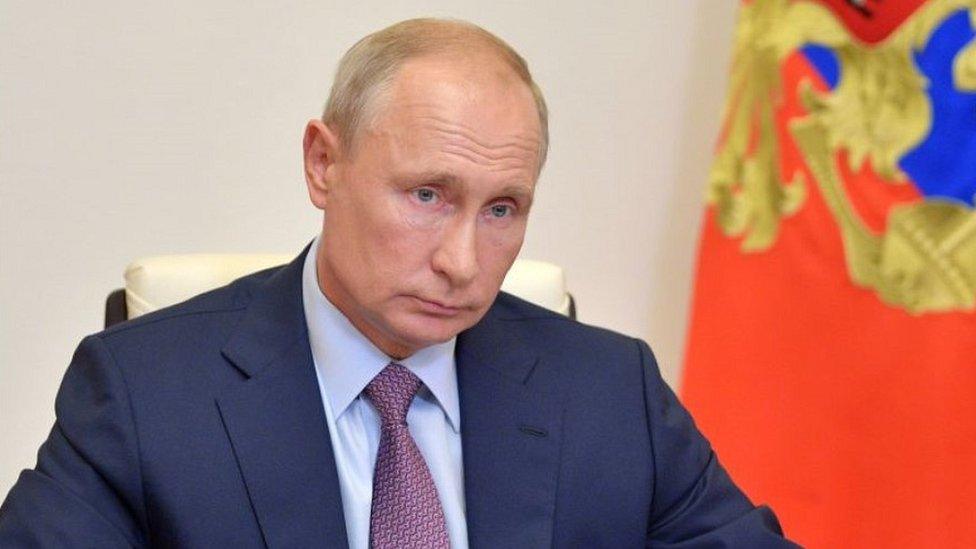
President Putin has been in power for 20 years
The Russian parliament's lower house - the Duma - has backed a bill granting Russian presidents and their families immunity from criminal prosecution after they leave office.
It is among constitutional amendments approved in a referendum in July. Supporters of President Vladimir Putin dominate both houses of parliament.
Mr Putin's fourth term ends in 2024, but the amendments allow him to run for two more terms.
He is 68 and has no obvious successor.
The immunity bill revives speculation about Mr Putin's political future. He has been in power since 2000, exercising huge influence and patronage.
His arch-critic Alexei Navalny tweeted: "Why does Putin need an immunity law now?" And then he asked: "Can dictators step down of their own free will?"
The bill passed a first reading in the Duma on Tuesday, where most MPs belong to the pro-Putin United Russia party. Thirty-seven Communist MPs voted against.
There will be two more Duma readings, then it goes to the Federation Council (upper house) and Mr Putin himself to be signed off.
Under the immunity provisions, a former president and his family would have immunity from any police searches or questioning, or any confiscation of their property.
They would not be prosecuted for any crimes committed in their lifetime, except for alleged acts of treason or other grave crimes in exceptional circumstances.
Currently the only living Russian ex-president is Mr Putin's ally Dmitry Medvedev.
Ex-Soviet President Mikhail Gorbachev would not get such immunity, because he was not Russian president.
United Russia MP Pavel Krasheninnikov, one of the bill's authors, said the aim was to give a president "guarantees... important for the stability of the state and society".
Read more on this topic:
With President Putin's approval rating at an all-time low, what do people in his home city make of him?
The reforms reset Mr Putin's term limits to zero in 2024, allowing him to serve two more six-year terms.
Opposition figures denounced the referendum vote in July, saying he was aiming to be "president for life", a claim Mr Putin denies.
- Published2 July 2020
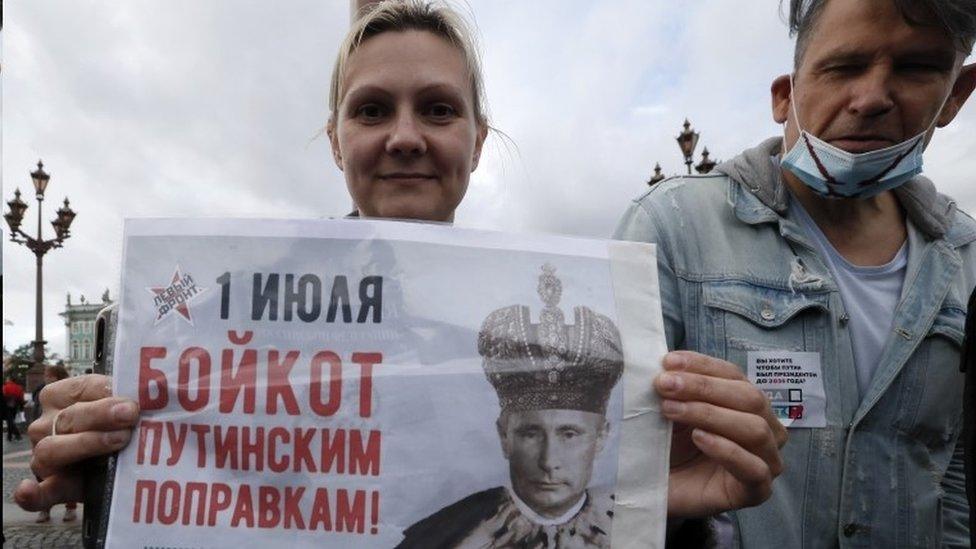
- Published11 March 2020
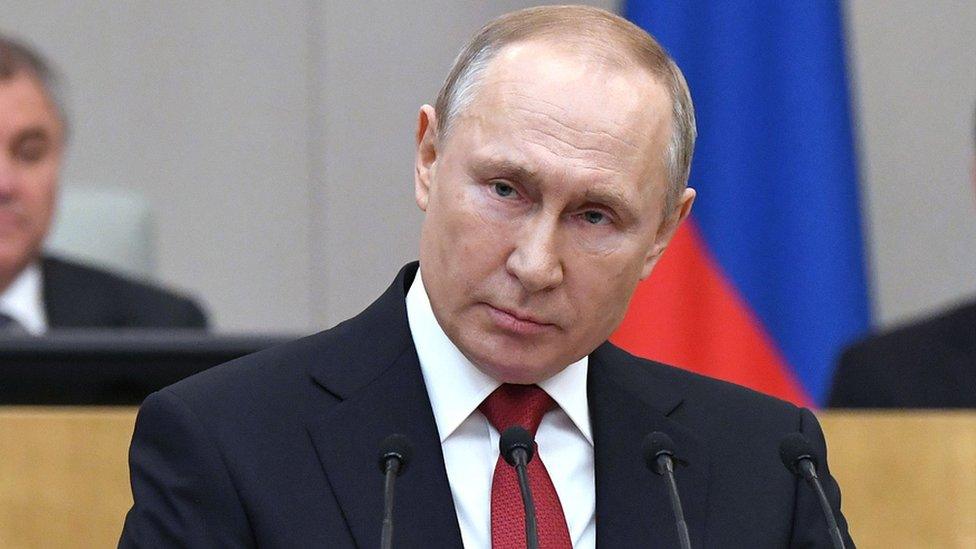
- Published3 March 2020
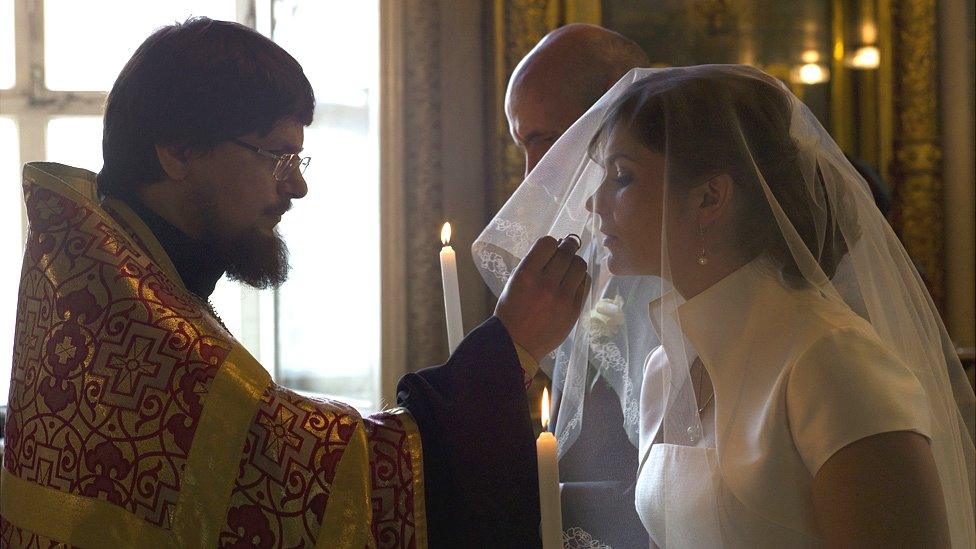
- Published4 June 2020
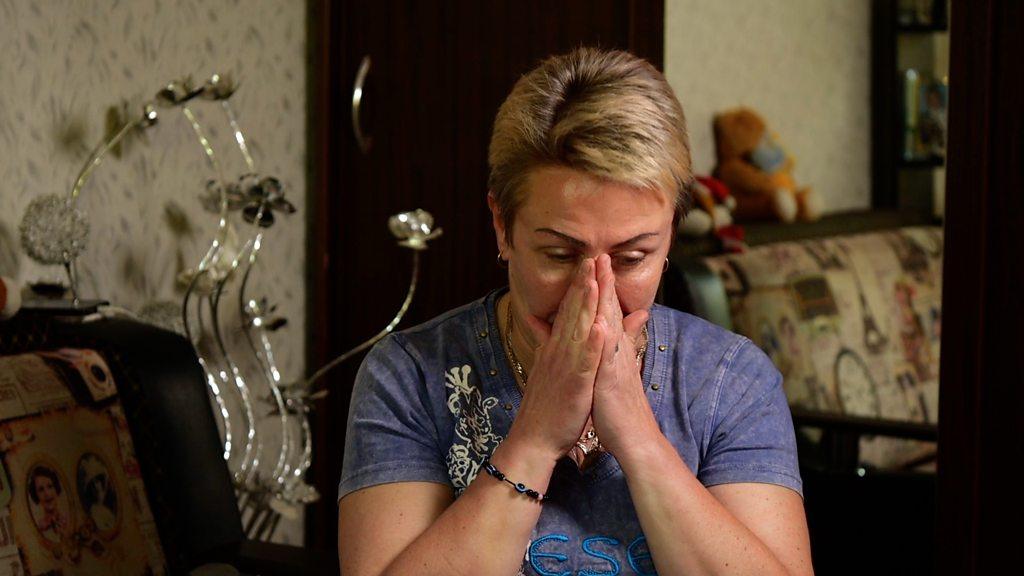
- Published16 January 2020
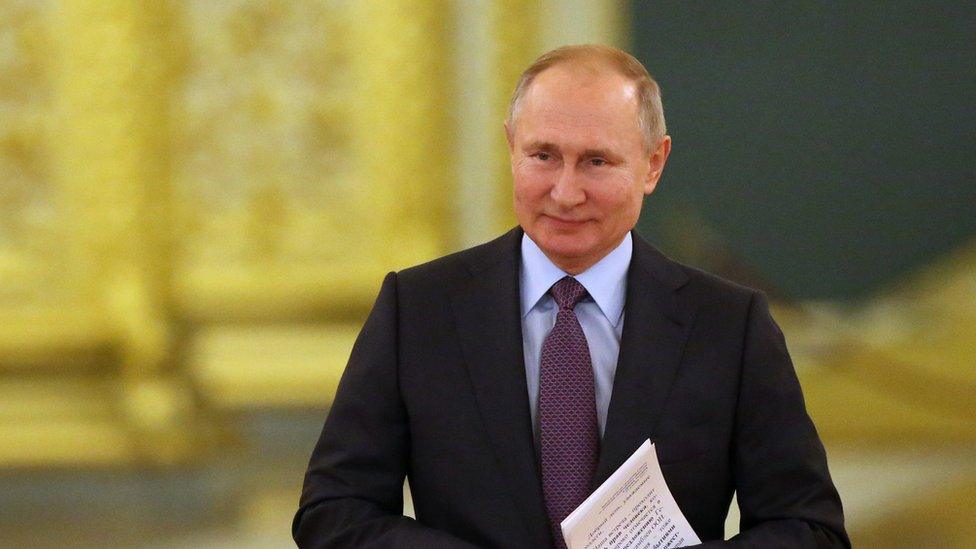
- Published17 March 2024
